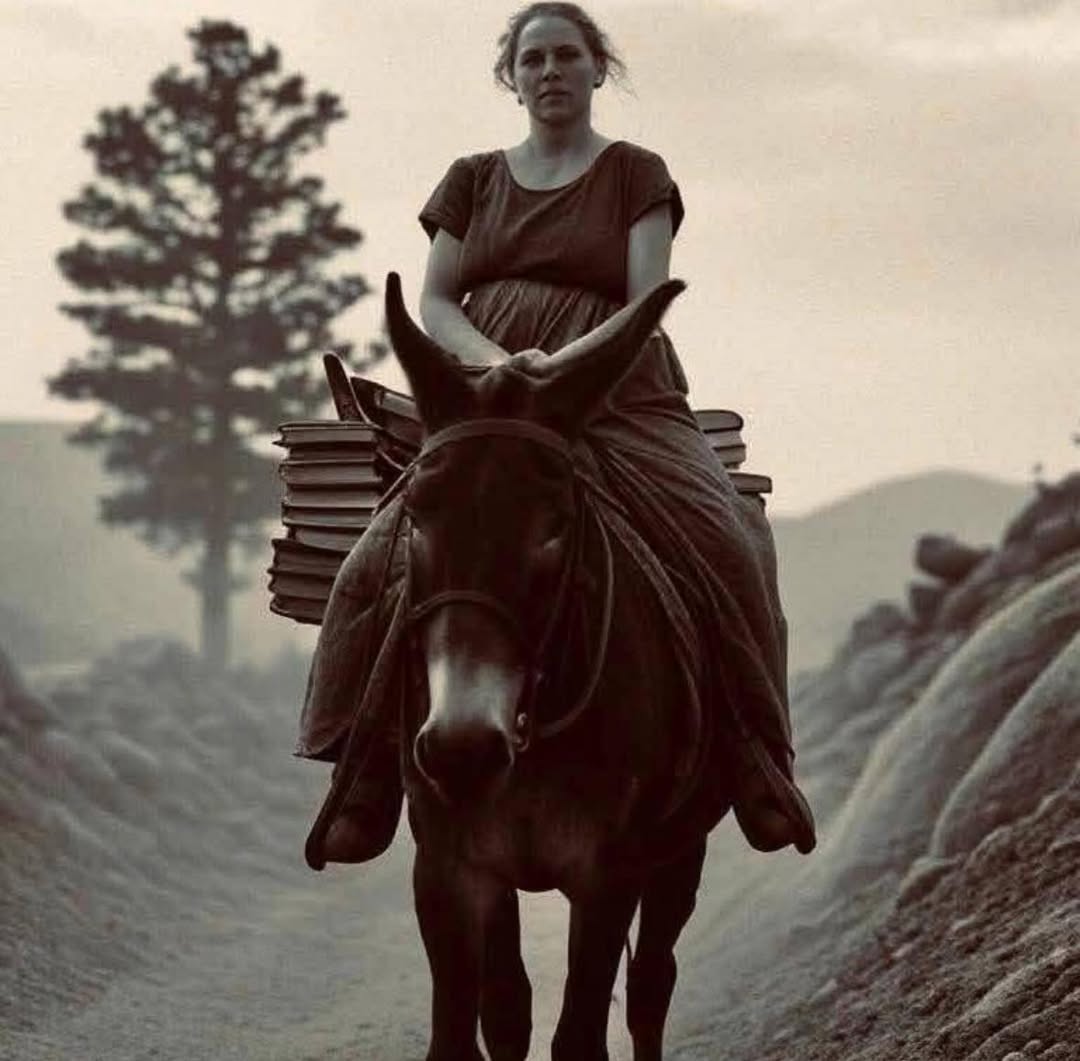The Year is 1935. America is suffocating under the iron grip of the Great Depression. Jobs are ghosts, hunger is a constant, and hope? Hope is a rare thing. But deep in the Appalachian hills, a different kind of wealth is being delivered—not in coins, not in bread, but in words.
They call them the Book Women—a fierce band of librarians with grit in their bones and reins in their hands. These weren’t city-dwelling bookkeepers. These were warriors on horseback, riding 100 to 200 miles a week through knee-deep mud, driving rain, and bitter snow. Their cargo? Not gold. Not grain. But stories—tales of adventure, survival, and dreams too big to be crushed by poverty.
They rode for the kids perched on crumbling porches, waiting for a tattered copy of Tom Sawyer. For the coal miners’ wives swapping recipes scribbled in the margins of cookbooks. For the old farmers tracing weather charts in worn almanacs, daring to dream of a better harvest.
Women like Mary Carson—a coal miner’s daughter who rode her mule, Old Joe, through flood-swollen rivers, hoisting her saddlebags high to keep the books dry. Who clung to Joe’s mane as a flash flood tried to take them both, whispering, “We’ve got deliveries to make.”
By 1943, the war effort swallowed the funding, and the program faded. But in its time, these horse-riding librarians delivered over 100,000 books to nearly 100,000 people. They didn’t just carry stories. They carried fire—the kind that lights the way through the darkest nights.
So let history remember this: while the Great Depression tried to break America’s spirit, the Book Women rode through the storm and proved that words are power, knowledge is freedom, and stories can save us all.
